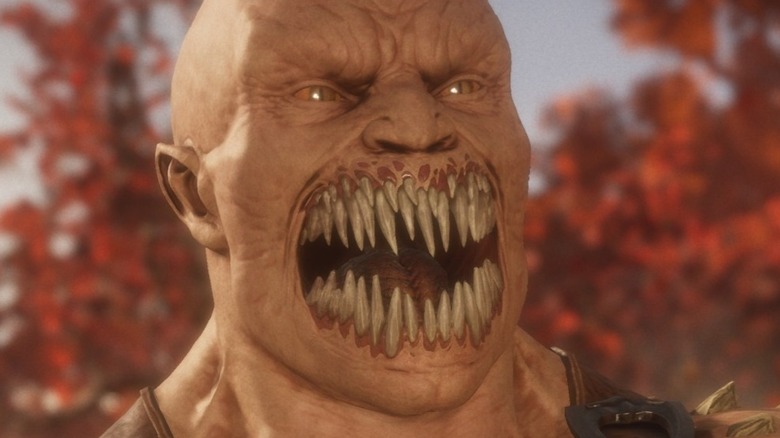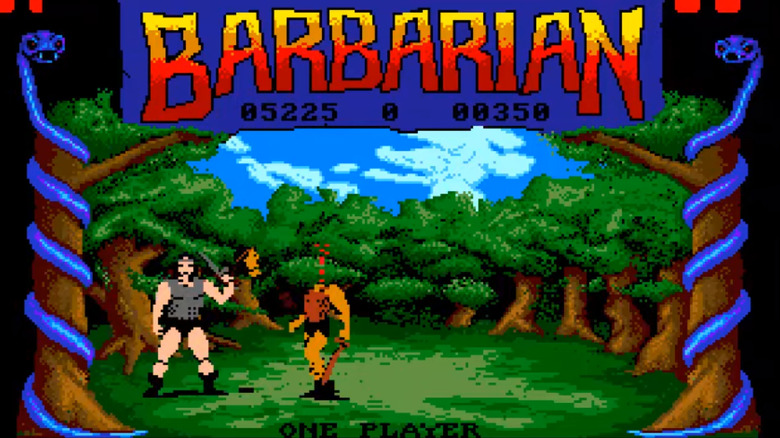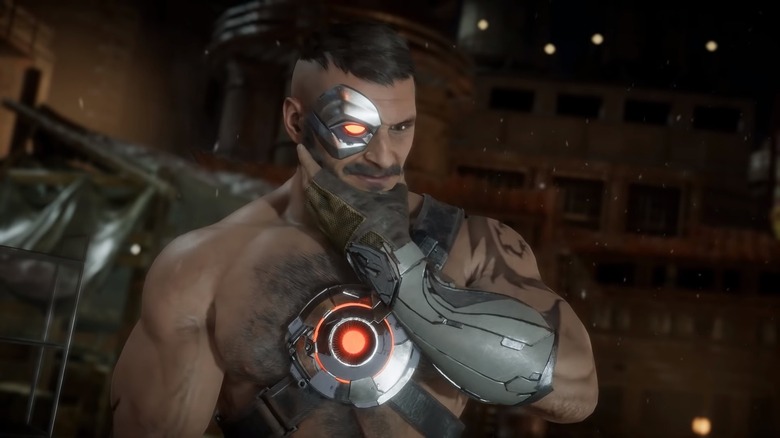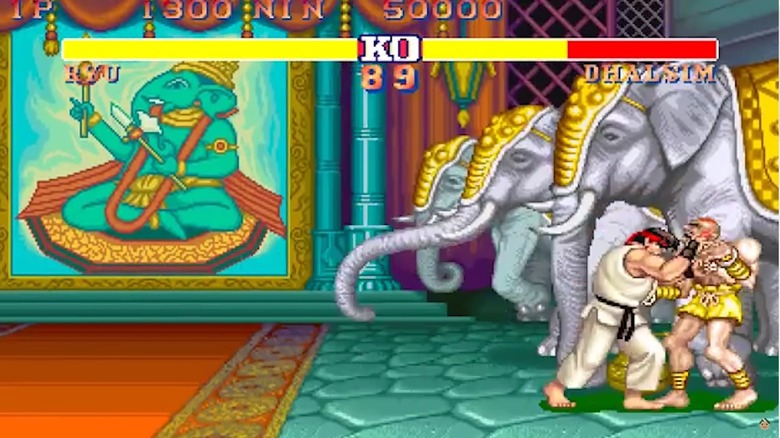Originally, Mortal Kombat Wasn't Going To Feature Fatalities
If the "Mortal Kombat" franchise is known for anything, it's known for its fatalities – brutal ways to end a fight that require the winning player to enter specific inputs. The signature coup de grâce mechanic was iconic at the series' inception, and to this day, it's one of the main features that separates the "Mortal Kombat" franchise from other fighting games. In a few of the early "Mortal Kombat" games, fatalities had to be censored on certain consoles for their sheer brutality, but nowadays, seeing Scorpion shoot his chained kunai through the freshly-decapitated head of Sub-Zero is par for the course. And from what's known about "Mortal Kombat 12," it's sure to keep up the trend.
It's interesting, then, that fatalities were not originally going to be included in the game at all. In a recent interview between Brian Tong and co-creator of "Mortal Kombat" Ed Boon, the origins of this now-iconic "Mortal Kombat" mechanic were revealed.
Barbarian and the origin of fatalities
When asked about where the iconic deathblow move came from, Ed Boon began to speak about Shang Tsung, the final boss of the first "Mortal Kombat" arcade game. When defeated, Shang Tsung would decapitate the player and send their head flying.
Boon said this move was specifically inspired by the 1984 game "Barbarian: The Ultimate Warrior" for the Commodore 64. On the title screen for this fighting game, players would see two characters duke it out until one cut the other's head off, sending it flying as the victor raised a fist in victory.
Boon went on to say that the team tried to emulate this awe-inspiring moment in "Mortal Kombat" by giving every character a unique animation when they were defeated by Shang Tsung. Technically, this finishing move is the first fatality in the series, and it wasn't intended for players to be able to perform, at least not at first.
Johnny Cage and Kano performed the first fatalities ever
According to Boon, "Just as goofing around one time, we made Johnny Cage duck down and uppercut... and we just used the head animation, used the falling down one, but you could do it." It was initially just a joke, but after "everyone lost their mind in the studio," it became apparent that it had to become something every character could do – starting with Johnny Cage. It wasn't going to be just an easter egg in "Mortal Kombat,"; it was going to be the main feature.
After seeing how the staff reacted to Johnny Cage punching someone's head off, the team at NetherRealm Studios began working on fatalities for every other character – NetherRealm Studios already had Johnny Cage's fatality figured out, which left the other seven. Kano was next to get a unique fatality, in which he rips the enemy's heart out of their chest and holds it up, still dripping in blood. "That was like this martial arts movie cliché that we wanted to duplicate," Boon said.
Street Fighter is the reason fatalities happen at the end of each round
Boon said that the NetherRealm team knew there was something special about giving each character unique fatalities, even if they were a bit cheesy or relied on clichés. Boon went on to talk about how the "Street Fighter" series was also a primary reason why fatalities were implemented in "Mortal Kombat." Boon referenced the stun mechanic of the original "Street Fighter" games, where players can become frozen in place as they recover from being dazed.
"That drove me insane when you go dizzy and you get a free hit on me," Boon said, "so we moved that to the end of the fight." fatalities came from Boon's frustration, and having the losing player only get dazed at the end of a fight made it less of a punishment for them and more of a way for the winner to show off
It is difficult to think of what the "Mortal Kombat" series would look like without this now-iconic feature — even as some of the creators hate certain fatalities. After implementing fatalities in the original game, Boon said, "I think that's really when the game became "Mortal Kombat"... it just kind of pieced together."




